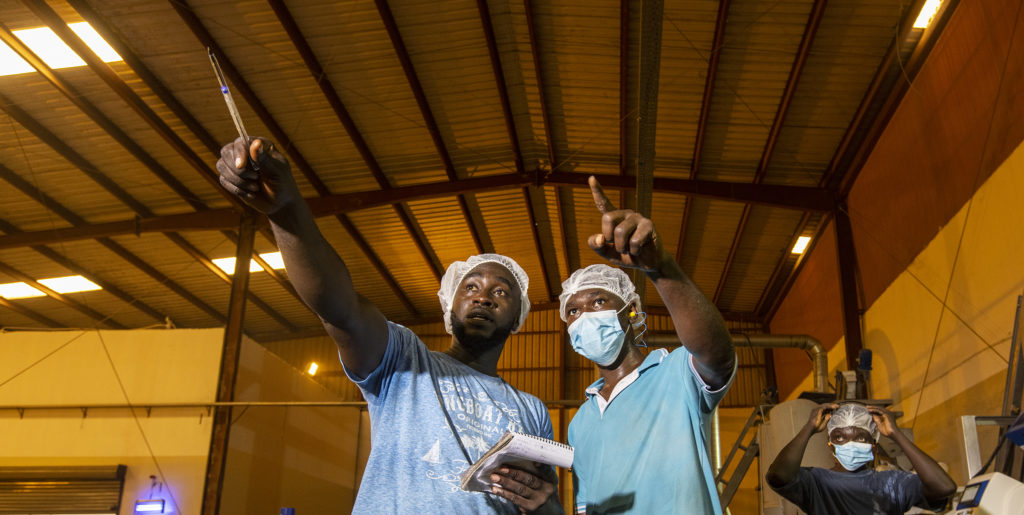
The goal of any food safety program is to prevent illness. There are several reasons that food can make a person sick. In this course we will explore these reasons and devise ways to reduce the risk of your food making people sick. When we investigate the reason for an illness, we will be looking for the specific “hazard” that was present. So, our objective is to identify and reduce or eliminate these hazards.
When a group of people become sick for the same reason it is called an “outbreak.” The peanut industry has experienced several outbreaks that have been caused by one particular hazard: Salmonella bacteria. Salmonella has the potential to contaminate raw agricultural commodities because crops are grown outside and exposed to different sources of the bacteria in the environment. Salmonella also has the potential to grow within processing facilities if they lack measures to prevent bacteria growth.
The worst outbreak from a peanut product occurred in the United States in 2009. A company that produced peanut butter and peanut paste ignored many important safeguards to protect against Salmonella and shipped contaminated products to commercial customers, who then incorporated the contaminated product into foods that went to consumers. This resulted in at least 714 people getting sick and contributed to nine deaths. The outbreak involved 3,900 products made by 200 companies.
The supplying company went out of business and the owners were convicted and sentenced to prison.
This example demonstrates the importance of food safety practices. It shows that many people can become sick or die through the actions of a single company and that a company’s livelihood and its employees’ jobs can be at risk when poor practices are allowed to prevail.

